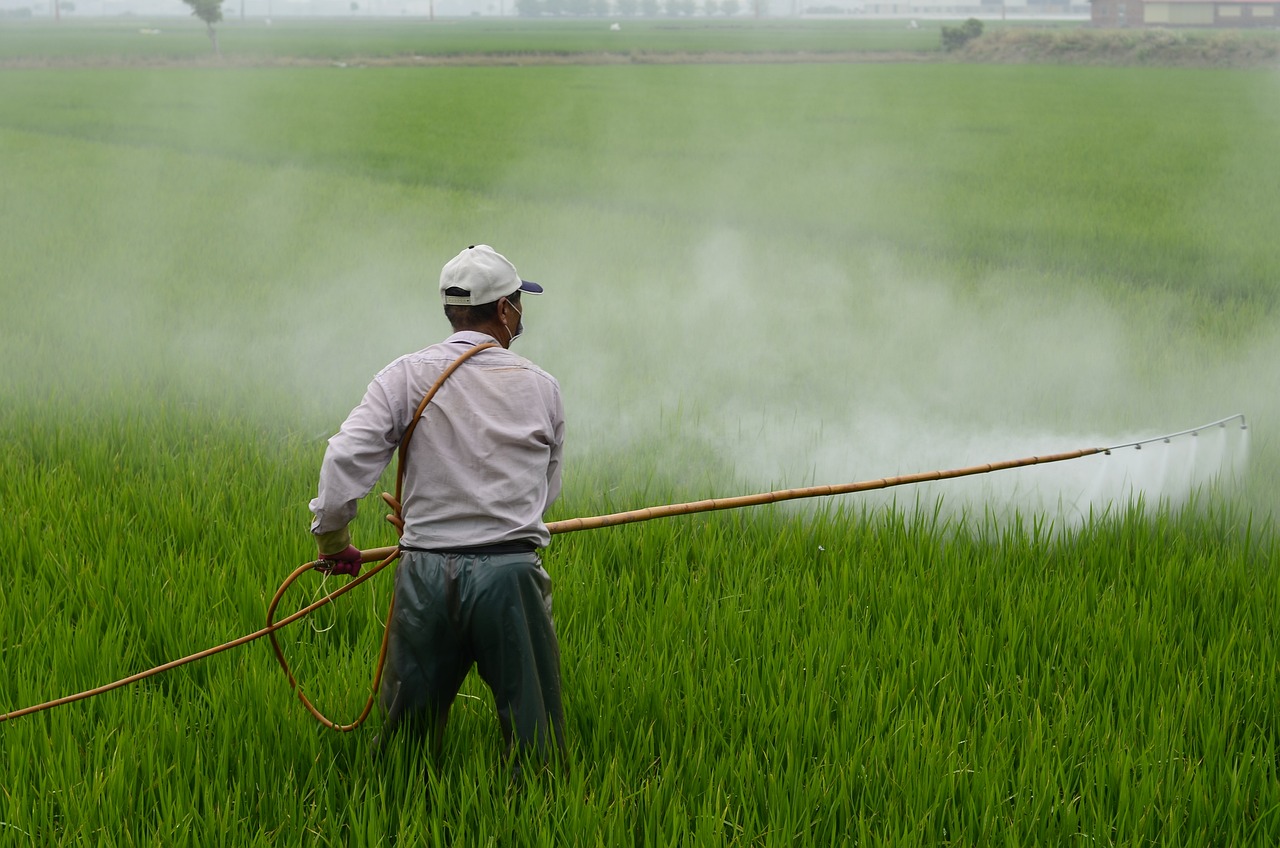By definition, HHPS are pesticides that are acknowledged to present particularly high levels of acute or chronic hazards to health or environment according to internationally accepted classification systems such as WHO or Global Harmonized System (GHS) or their listing in relevant binding international agreements or conventions, and includes pesticides that appear to cause severe or irreversible harm to human and animal health or the environment.
While they constitute only a small proportion of pesticides globally, HHPs cause a lot of harm particularly in Low- and Middle-Income Countries (LMICs). Our work aims to contribute to the Global Framework on Chemicals (GFC): For a Planet Free of Harm from Chemicals and Waste which has committed to phase out HHPs from agriculture by 2035, and contribute to the achievement of Sustainable Development Goals (SDGs).
Objectives
Our work on HHPs aim to achieve the following objectives:
- Advocating for elimination of harms caused on human health and environment by Highly Hazardous Pesticides.
- Promoting the use of safer alternatives such as agroecology and Integrated Pest Management (IPM) to protect human health and the environment.
- Influencing policies and regulations that support phase out of HHPs and adoption of safer alternatives.
Ongoing work
- Strengthening national and regional capacities on the management of Highly Hazardous Pesticides (HHPs) in the East African Community (EAC) and Southern African Development Community (SADC) regions
CEJAD is collaborating with the Centre of Pesticide Suicide prevention (CPSP) at the University of Edinburgh, United Kingdom on pesticide suicide prevention.The project is also implemented in partnership with Food and Agriculture Organization of the United Nations (FAO), University of Cape Town, EAC Secretariat, Southern African Pesticides Regulators Forum (SAPReF) and Swedish Chemicals Agency. The goal of this project is to reduce deaths caused by intentional consumption of HHPs in the two regions by supporting national pesticide regulators in identifying the most harmful pesticides and acting to remove them from use.
The project is being implemented at both the national and regional levels. At the national level, the project is supporting the Government of Zimbabwe and United Republic of Tanzania to identify pesticides linked with suicides and remove them from use. At the regional level, the project is supporting the development of regional strategies for phasing HHPs.
- Campaign against trade, distribution and use of Highly Hazardous pesticides (HHPs) in Kenya
CEJAD is implementing a project to reduce and eventuallyeliminate the trade, distribution and use of Highly Hazardous Pesticides in Kenya, particularly those banned in the developed world.The project is supported by the Sigrid Rausing Trust (SRT). The project aims to achieve the following:
- Engagement of relevant policy makers tophase out the use of HHPSin Kenya.
- Identification of HHPs sold and used in Kenya.
- Monitoring the importation of banned HHPs andexposing theunfair trade practices.
- Educating smallholder farmers in Kenya to adopt agro- ecology as an alternative to toxic pesticides.
Past Work
In the past, CEJAD has undertaken the following projects in relation to Highly Hazardous Pesticides in Kenya:
- In 2021, we conducted an assessment of agroecological approaches to pest management in the Lake Victoria Region. Smallholder vegetable farmers were also trained on agroecological approaches.
- In July 2021, CEJAD together withGreenPeace Kenya submitted a dossier recommending withdrawal of HHPs following acall for public participation by the Pest Control Products Board (PCPB) on 30 pesticides active ingredients.
- In 2020, we conducted a study to assess the Knowledge Attitude and Practice (KAP) of Smallholder vegetable farmers in the Lake Victoria region on the effects of pesticides and agroecology.
- In 2018/2019, we conducted a situational analysis of Highly Hazardous Pesticides (HHPs) and alternatives in Kenya using the Pesticide Action Network (PAN) International list of HHPs. Read the report at: https://ipen.org/documents/report-situation-hhps-and-alternatives-kenya
- In 2014, we developed a community monitoring system for the health impacts of HHPs among flower workers in Naivasha.
Useful links






